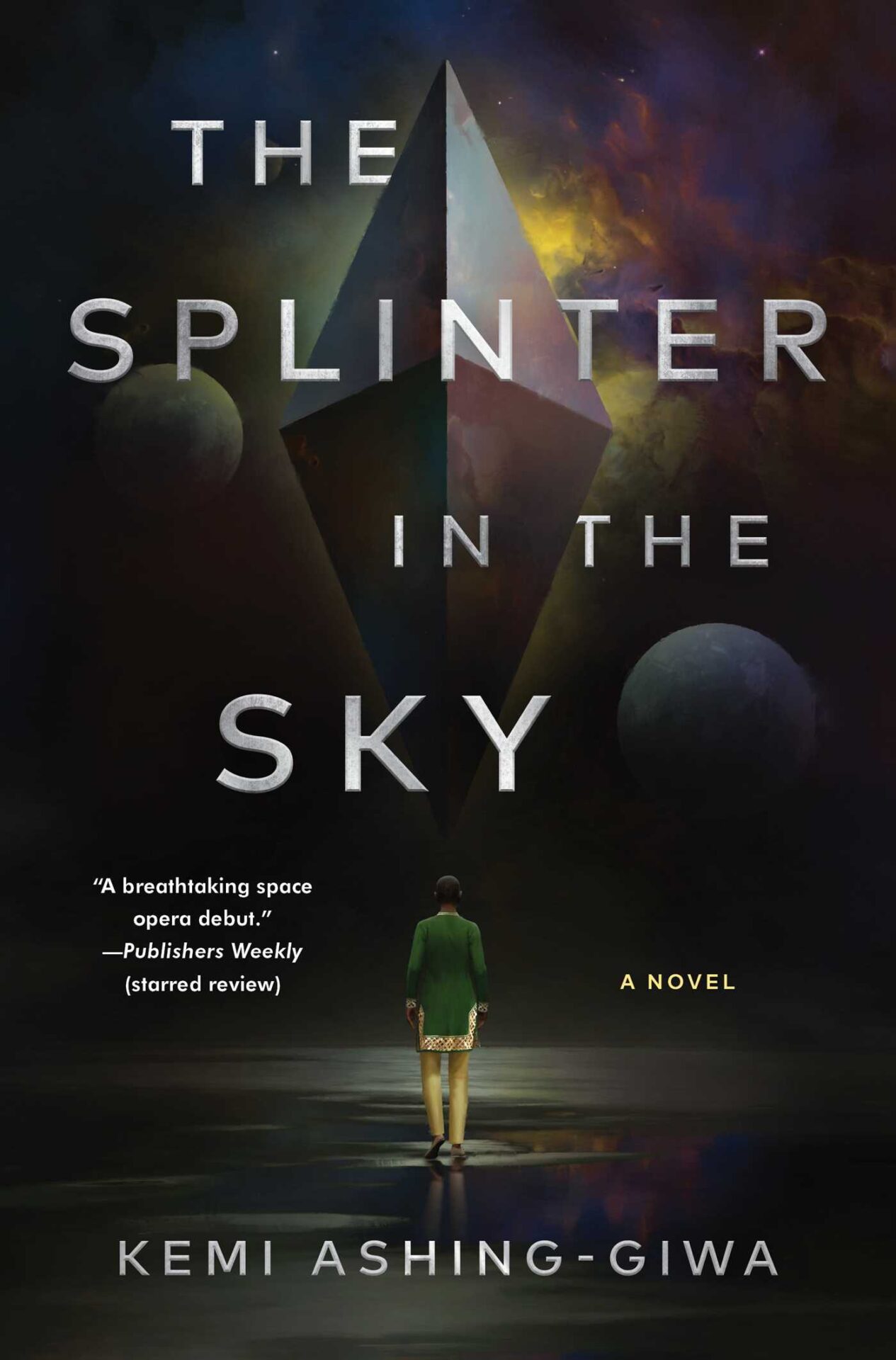
Kemi Ashing-Giwa is joining us today to talk about her novel, Splinter In The Sky. Here’s the publisher’s description:
The dust may have settled on the war between the Holy Vaalbaran Empire and the Ominirish Republic, but that means little to a lowly scribe like Enitan Ijebu. Following the Vaalbaran annexation of their moon Koriko, Enitan and her people are bitterly oppressed, forced to bury their language and culture under threat of retaliation. All Enitan wants is to keep her head down, quit her day job, and expand her fledgling tea business.
When her lover is assassinated and her sibling is abducted by Imperial soldiers, Enitan abandons her plans and embarks on a rescue mission to the distant Vaalbaran capital, where she employs her expertise as a tea specialist to infiltrate the royal court. Her talents and unique positioning are not lost on Ominira’s High Consul, nor do they escape the notice of Vaalbara’s new God-Emperor Menkhet Ta-Miu. Caught between two world powers and hunted by hidden enemies, Enitan will learn just how far she is willing to go to exact vengeance, free her sibling, and, perhaps, even secure her homeland’s freedom.
What’s Kemi’s favorite bit?

Kemi Ashing-Giwa
Imperialism is contradiction. Even as a colonizing force brutalizes a people, it aims to persuade its new subjects to love it. Empires survive by devouring; by nature they cannot survive without consuming others—geographically, yes, but also culturally, politically, economically.
This conflict lies at the very heart of The Splinter in the Sky. The main character, Enitan, loathes the Holy Vaalbaran Empire for what it has done to her nation Koriko and to her personally, but once within the Empire’s core, she cannot help but be dazzled by its splendor. Vaalbara’s weapons extend far beyond its dissection guns and shockstaffs; by the time the story takes place, it has done an excellent job of asserting its supposed superiority in every aspect of life, from technology to religion to language (the holy Vaalbaran tongue, Orin, does not recognize anyone outside imperial borders as “people”).
Enitan rejects this with every fiber of her being, but some desperate part of her craves the Empire’s acceptance, its validation and all the sundry benefits that come with it. So even though she knows full well that Vaalbara’s glitter was paid for in her people’s blood, upon her arrival in the capital, she looks upon her ornate surroundings with awe. It is lethally easy to get swept up in the grandeur of the Empire. But the brutal truth is this: even if Enitan loved Vaalbara, it would never love her back. This is a tension that she constantly struggles with—in herself, as she carves a path through the imperial elite; in her bond with her sibling Xiang, an aspiring architect seeking admission to elite Vaalbaran institutions; and in her tenuous alliance with the God-Emperor of Vaalbara herself, who is not what she seems.
To keep its sacred tongue pure, virtually all communication between the Empire and its colonies is done through a buffer language. Enitan is the only Korikese “savage” officially permitted to learn Orin, a double-sided privilege that allows her to navigate the intricacies of Vaalbaran society. In another world, she might have kept her head down and peacefully continued her work as a scribe in her city’s missionary church. She might have eventually convinced herself of Vaalbara’s omnipotence, that she had no choice but to advance through its ranks, even if it meant a little more collective suffering for her country. She might have even thrived under the Empire’s heel. But in this world, Enitan’s sibling is kidnapped by imperial agents. And if getting them back requires tearing the Empire—beautiful, horrible, and never hers—asunder, then so be it.
LINKS:
BIO:
At 22-years-old, Kemi Ashing-Giwa is a PhD student at Stanford University. She earned her undergraduate degree at Harvard University, studying integrative biology and astrophysics, both of which play a role in her stories. Her short fiction has been published in Tor, Kaleidotrope, and Anathema: Spec from the Margins.
